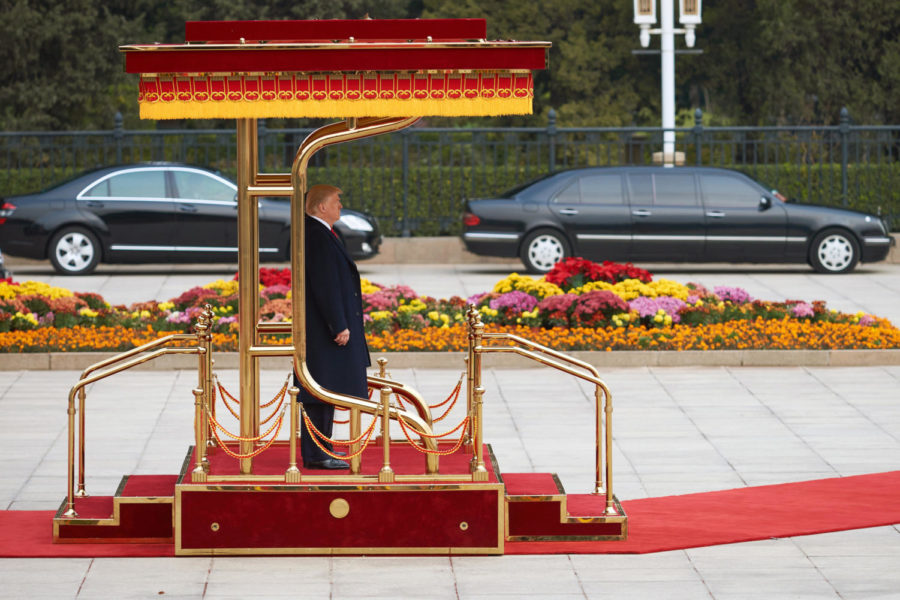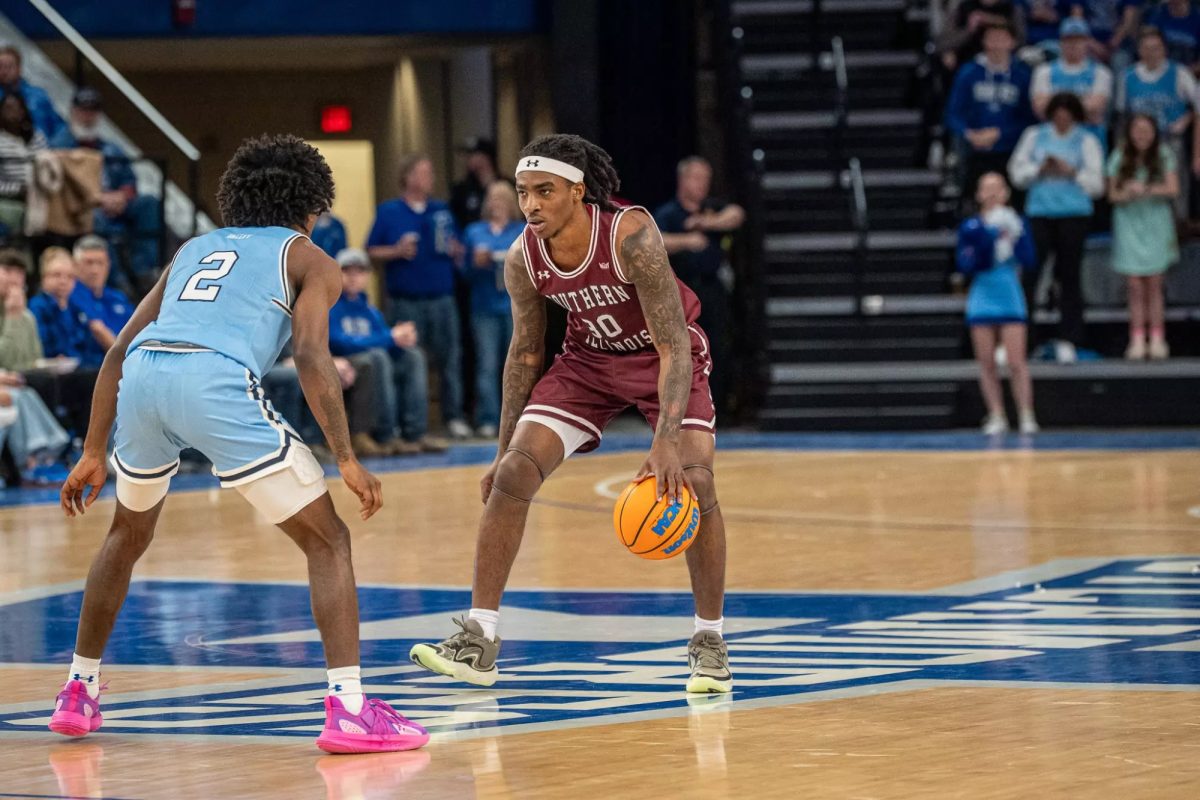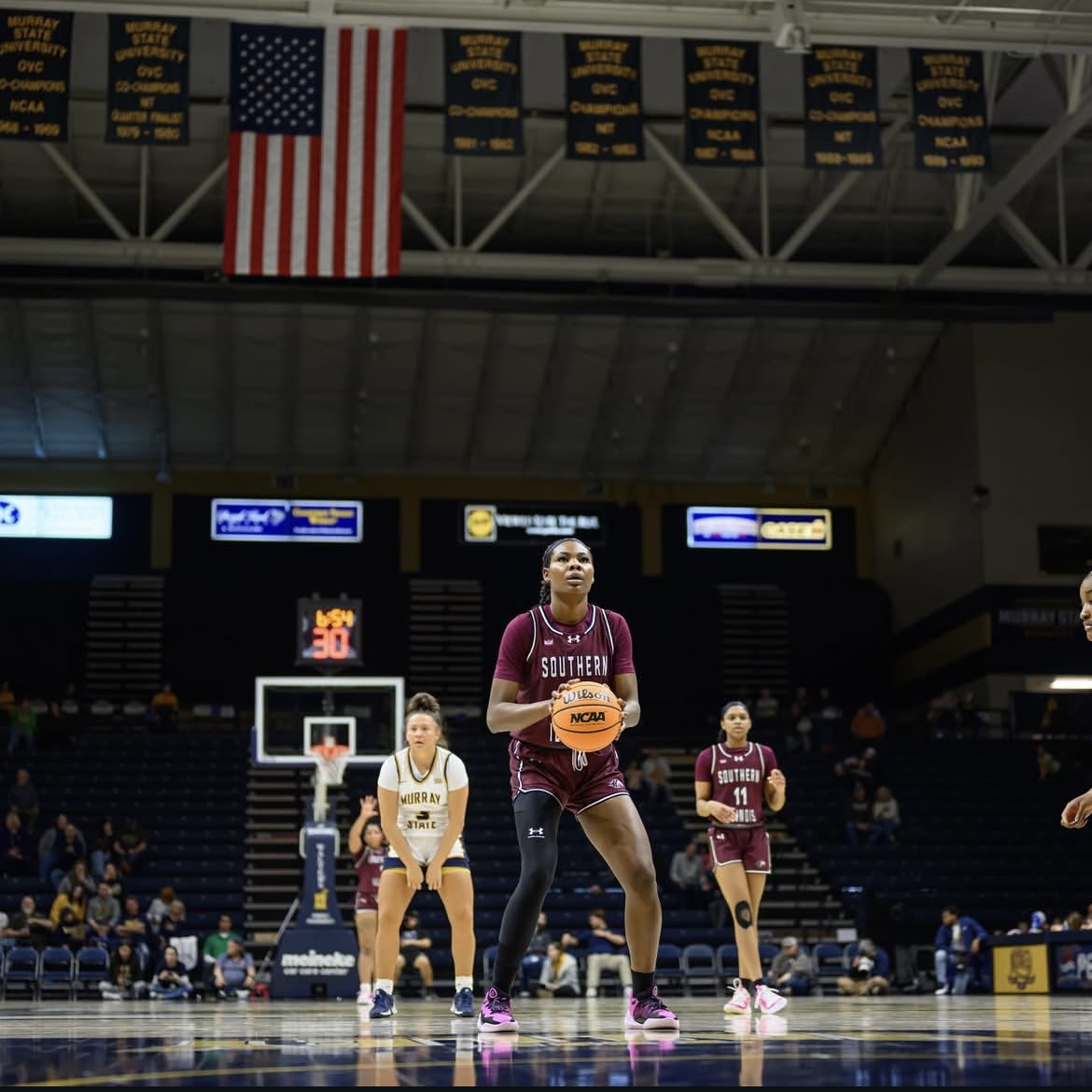Trump delivers ‘America First’ trade message to Asia conference, says U.S. will only cut deals with individual nations
US President Donald Trump ahead of a meeting with China’s President Xi Jinping outside the Great Hall of the People in Beijing on Nov. 9, 2017. (Artyom Ivanov/Tass/Abaca Press/TNS)
November 10, 2017
President Trump on Friday delivered a stern message to a group of Pacific Rim nations eager for signs of the United States’ continued engagement and economic leadership in the region: America First.
“We are not going to let the United States be taken advantage of anymore,” Trump told an audience of business leaders assembled in Vietnam for the Asia-Pacific Economic Cooperation summit, which annually gathers leaders from across the region and around the world to discuss trade and development.
“I am always going to put America first the same way that I expect all of you in this room to put your countries first.”
Advertisement
Though the president began with fulsome praise, citing individual countries by name for their economic and social progress, he soon segued to the kind of speech he often delivers to rowdy American arenas full of supporters — railing against unfair trade practices, closed factories and and Chinese economic aggression.
Unlike at those rallies, at this seaside conference where business and government leaders are trying to salvage a Pacific nations trade deal that Trump derailed, the American president received scattered applause, even as many in the crowd stood to snap pictures at the start of the half-hour speech.
At a couple points, Trump paused to express his disappointment at the restrained reactions. “Not too many people here are from Thailand,” he said when his warm words about the country were met with silence.
After he complained that “while we lowered market barriers, other countries didn’t open their markets to us” — something the now scuttled Trans-Pacific Partnership would have done much to change for the U.S. — the president responded to an apparent heckler in the crowd.
“Funny. They must have been one of the beneficiaries,” he said, gazing into the audience. “What country do you come from, sir?”
After days of conciliatory talk during his visit to Beijing, Trump offered harsher criticism of China, mostly not by name, than he had publicly in that country. He spoke against countries that use “government-run industrial planning and state-owned enterprises” and engage in “product dumping, subsidized goods, currency manipulation and predatory industrial policies,” echoing critiques from his campaign speeches.
“They ignored the rules to gain advantage over those who followed the rules, causing enormous distortions in commerce and threatening the foundations of international trade itself,” he added.
Advertisement*
The tough critique contrasted with Trump’s rhetoric in China leading up to Friday’s speech, when he muted his criticism of the country as he sought to build a warmer personal bond with President Xi Jinping. Indeed, the only mention of China by name on Friday came when Trump repeated statements he alongside Xi on Thursday, blaming his predecessors rather than China for the U.S. trade deficit..
“I do not blame China or any other country, of which there are many, for taking advantage of the United States on trade,” Trump said. “If their representatives are able to get away with it, they are just doing their jobs.”
“I wish previous administrations in my country saw what was happening and did something about it,” he continued. “They did not, but I will.”
The remarks on China injected added tension at the conference. Trump’s speech was followed immediately by an address from Xi, who celebrated globalization and open markets. Since Trump’s rejection of the Trans-Pacific Partnership, Xi has aggressively courted Asian trading partners, seeking to fill the leadership void.
Trump’s speech was one of two major addresses he has delivered on his 13-day, five-nation tour. The first, in Seoul, focused on security and the threat posed by North Korea’s nuclear program. Friday’s speech was intended to outline Trump’s economic agenda and the principal of a “free and open Indo-Pacific,” a term his administration has begun promoting to bring India into the regional alliances to help balance China’s growing power.
Trump withdrew from the Trans-Pacific Partnership soon after taking office. President Obama, picking up from President George W. Bush’s early efforts, had brokered that agreement in part to counter China and assert America’s place as a power in the region. It was supported by many of the Asian allies Trump is visiting and addressing on his trip, and they have been apprehensive about U.S. intentions since he was elected, given his nationalist and anti-globalist platform .
Trump said that the United States would remain an important regional player but on far different terms than under Obama and other recent predecessors. He said the U.S. would instead forge bilateral trade agreements with individual countries “that will abide by the principles of fair and reciprocal trade, while resisting multilateral agreements that tie our hands, surrender our sovereignty and make meaningful enforcement practically impossible.”
He pitched it as a winning formula for everyone: “We will respect your independence and your sovereignty,” he said. “We want you to be strong, prosperous and self-reliant, rooted in your history and branching out toward the future.”
Yet Trump said the “Indo-Pacific dream” is only possible when all countries play by the rules. “Those who do not can be certain that the United States will no longer turn a blind eye to violations, cheating or economic aggression,” he said. “Those days are over.”
After much speculation about whether Trump would meet separately with Russian President Vladimir Putin at the summit, the White House confirmed that he would not. Press Secretary Sarah Huckabee Sanders told reporters that was “due to scheduling conflicts on both sides.”
Yet she acknowledged that time had been reserved on his public schedule for at least one meeting with a foreign leader. “I don’t think there’s anything that will take place in that space,” she said.
She added that an informal exchange between Trump and Putin on the sidelines of the conference is “certainly possible and likely.”
Any meeting with Putin would have been especially sensitive and politically charged, coming at a time when the White House is dealing with the intensifying investigation into potential collusion between the Trump presidential campaign and the Russian government involving Russian meddling in the 2016 election.
Trump had said on his way to Asia last week that he “expected” to meet with the Russian leader during the summit. A Putin aide had earlier told Russian media that a meeting was confirmed.
___
(c)2017 the Los Angeles Times
Visit the Los Angeles Times at www.latimes.com
Distributed by Tribune Content Agency, LLC.
Advertisement










